Camping is a lot of fun, but there are some dangers that come along with it. It is important to understand these dangers and have a plan to deal with them if any should arise. This list of 5 critical camping safety tips will help you plan a safer and more enjoyable family camping trip. Use these tips when preparing for your next camping trip. When you plan ahead, you can often avoid most of the dangers and ensure your trip is as awesome as you are hoping.
1. Bring an adequate First Aid kit
Having an adequate first aid kit is always on any good list of camping safety tips. This will be your first defense when it comes to injuries. You don’t want to be out in the wilderness and get a minor cut but realize you don’t have any band-aids. Additionally, if you or someone else happens to be injured in a more serious way, you will definitely need a first aid kit.
There are a lot of first aid kits to choose from but find one that fits your needs. If you are planning on being out for a longer period of time with more people, it would probably be best to bring a more robust kit. If your camping trip is a quick trip with fewer people, you will probably be able to get by with a smaller kit.
We really like the Surviveware Large First Aid Kit. It provides lots of great first aid supplies and even included a 50-piece mini-kit that you can use for a grab-and-go kit.
2. Be aware and prepared for wildlife
Remember that while you are camping, there is a good chance you will encounter wildlife. Often that wildlife is in the form of squirrels, birds, and dears. Sometimes though, it can also be in the form of bears, mountain lions, and more dangerous animals. It is important to do research before you go camping to understand the type of wildlife that is found near your campsite.
Bringing items like bear repellent and bear bells is a good idea. Additionally, understanding how to react to different types of wildlife is important. Every locale will have different wildlife, and knowing what it is, is important. You don’t want to run into dangerous wildlife without at least a basic understanding of what you should do.
The best wildlife safety camping tips are you be aware of local wildlife, know how to react to the common wildlife, and stay alert.
3. Plan proper clothing and bedding
Having the proper clothing and bedding is vital for camping safety. Bringing clothing that keeps you protected from the sun, warm in the cold, and protected from injury is very important. Likewise, ensuring your bedding fits the temperatures you will experience is key to camping safety.
Make sure you know what type of temperatures you will be experiencing. You can then plan your wardrobe properly. Staying cool in the summer will help prevent heat exhaustion and other heat-related issues while having clothes warm enough for cold weather will prevent cold-related issues.
Similarly, you will sleep miserably if you try to use a winter sleeping bag during the summer. Likewise, using a sleeping bag that is rated for warm weather is a very bad idea for winter camping. Check out our list of the best sleeping bags to find the right one for you.
If you bring the correct clothing and bedding for the temperatures you will experience, your entire camping trip will be more enjoyable and safer.
4. Know where you can get help
Another important aspect of camping safety tips is to know where you can go for help. You don’t want to have an emergency and not know where to go to get help or where the nearest hospital is. It’s important to know all of this before you go camping so that if something does happen, you have a plan and know where to go.
If you are in a designated campground you will often have neighbor campers and can start with them. Additionally, at campgrounds, there is sometimes a head office where you can go for help. They will often have additional emergency equipment as well as a landline that you can use if you do not have cell reception.
If you are doing dispersed camping, it is even more important for you to know where you can get help. Know where you are in relation to the nearest city, hospital, campground, or ranger station, and know the quickest way to get there.
5. Let friends and family know your plans
Last but not least, let friends and family know when and where you will be going camping. Don’t go camping without letting other people know. You want to have people know when you should be back. If anything was to happen they would at least begin to worry and start looking for you when you didn’t come back as planned.
Likewise, if people do need to start looking for you, they need to know where to start looking. This will allow them to begin searching for you in the correct area and give them a better chance of finding and helping you.
So before you head out on your next camping trip, make sure you tell your friends and family where you are going and how long you will be gone. You don’t want to be caught out in the wilderness, need help, and no one knows they should be looking for you or even where to start looking.
By no means is this everything you need to know. These camping safety tips will simply help you cover the basics. Make sure you review these tips before your next camping trip so that you can ensure you cover your camping safety basics. Reviewing safety tips before your next trip is an important part of planning your trip but it is not the only thing you should review. Learn more about planning your next camping trip in our 9 Steps to Plan a Family Camping Trip article.

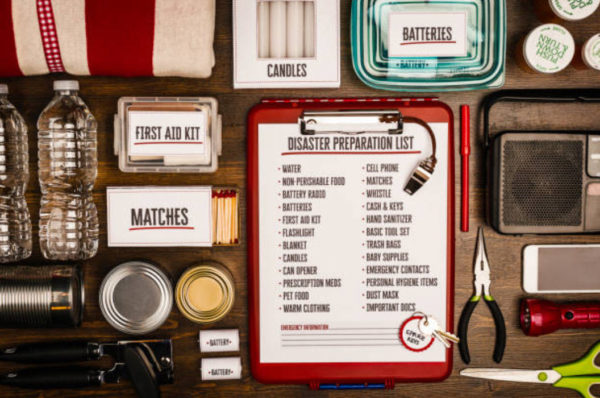
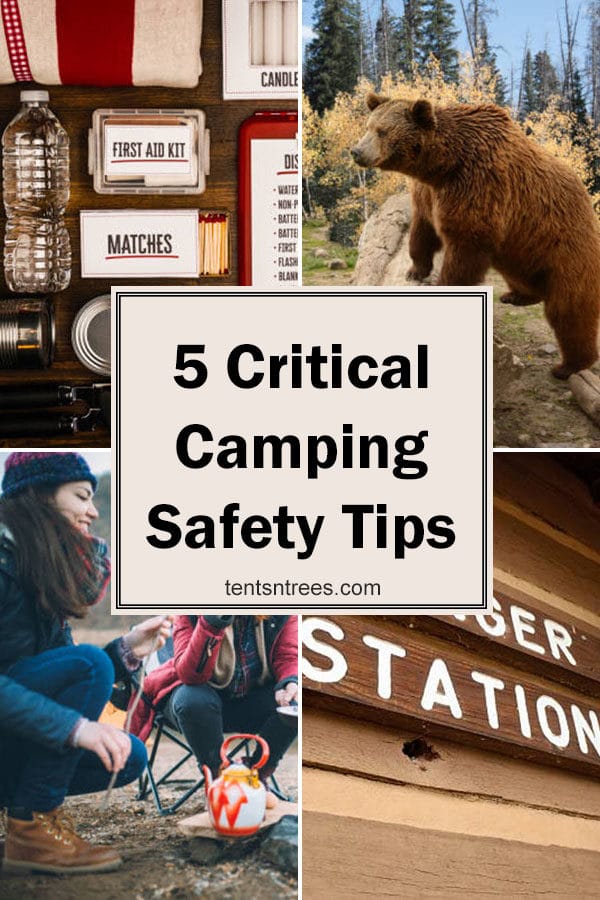
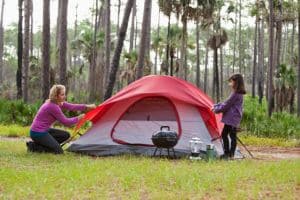
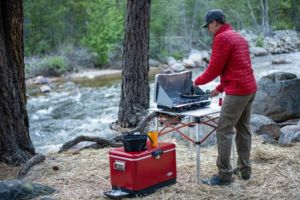
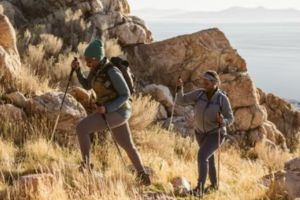
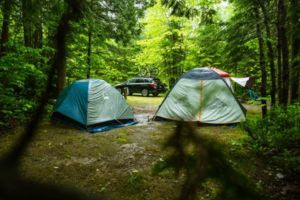
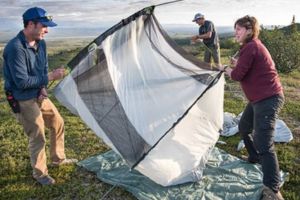
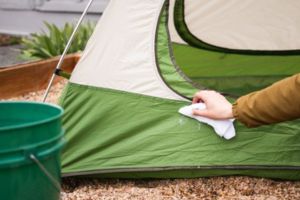
Leave A Comment